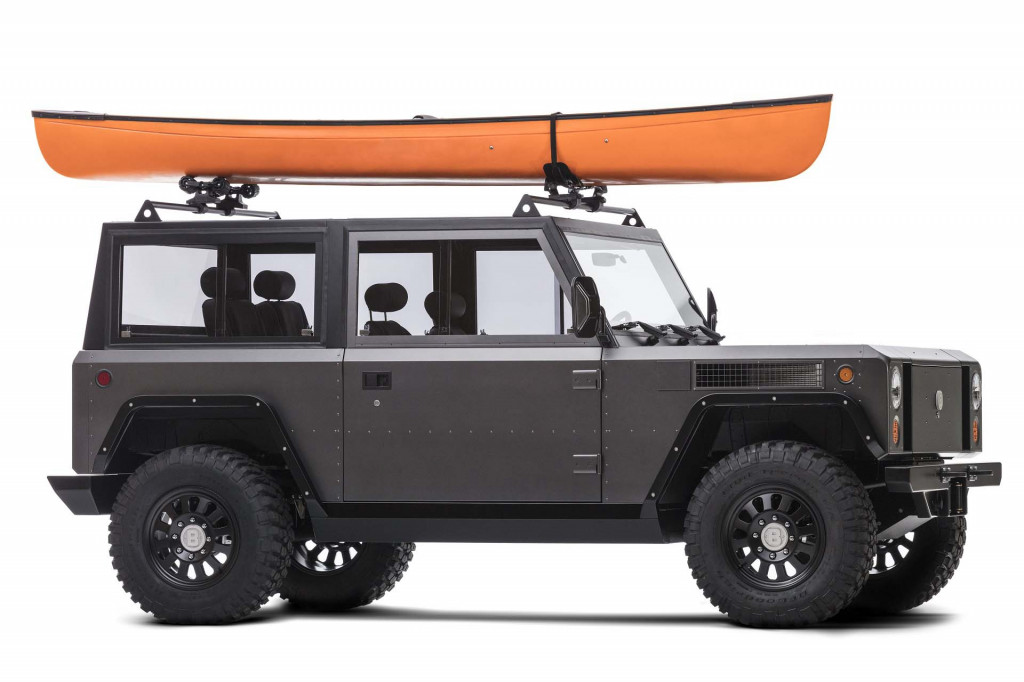Michigan-based Bollinger Motors announced earlier this month that it completed a move to a larger building in suburban Detroit.
And when they say larger, it’s all relative. The move is so Bollinger can accommodate a doubling of its workforce by the end of 2020, to 80 people, as it pushes ahead with the development of its heavy-duty electric trucks, with deliveries still expected sometime in 2021.
If you thought electric trucks were already a niche, that’s a small fraction of other upstart automakers such as Rivian or Lordstown Motors, both of which intend to mass-produce their electric trucks at large factories. The same goes for the upcoming GMC Hummer EV.
Bollinger has a different model that could work well for the company. Its trucks, the B1 SUV, B2 pickup truck, B2 Chassis Cab, and Chass-E version, will be hand-built by a third-party manufacturer. That reduces the number of in-house employees.

Bollinger Motors E-Chassis - March 2020

Bollinger B2 chassis cab

Bollinger B2 chassis cab
So does the Bollinger trucks’ intended Class 3 truck designation—meaning essentially that they won’t be required to comply with some of the most expensive parts of passenger-vehicle compliance, like crash-testing. The trucks won’t come with an EPA range rating, either.
With aluminum bodies, an expected 0-60 mph time of 4.5 seconds, 15 inches of ground clearance, an off-road low range, and a 60-kw onboard generator, the trucks may be competitive versus other gasoline and electric trucks on the way. They'll also boast a vintage look and feel afforded by their weight-class loophole.

Bollinger B1
The first two-door Bollinger B1 prototype from 2017 is on display at the Petersen Museum in Los Angeles as part of the “Alternating Currents” exhibit through October 2020.
Expect the company to evolve into more of an engineering-focused firm, based on what CEO Robert Bollinger, who called himself the “seed investor” of the whole venture, told Green Car Reports last year. Bollinger told us the company is interested in “keeping knowledge in,” which means the development, testing, and R&D work for its trucks—though not assembly—will all be done in-house. And that will likely take many more engineers.
